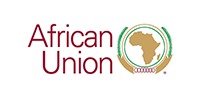Election Observation and Assistance of the East African Community (EAC)
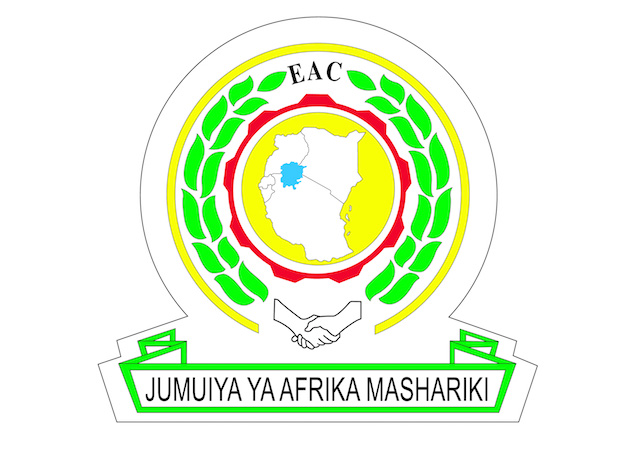 The East African Community (EAC) is a regional intergovernmental organisation of 6 Partner States: the Republics of Burundi (CENI Burundi), Kenya (IEBC), Rwanda (NEC Rwanda), South Sudan, the United Republic of Tanzania (NEC Tanzania), and the Republic of Uganda (Uganda Electoral Commission), with its headquarters in Arusha, Tanzania. The work of the EAC is guided by its Treaty which established the Community and which was signed on 30 November 1999 and entered into force on 7 July 2000.
The East African Community (EAC) is a regional intergovernmental organisation of 6 Partner States: the Republics of Burundi (CENI Burundi), Kenya (IEBC), Rwanda (NEC Rwanda), South Sudan, the United Republic of Tanzania (NEC Tanzania), and the Republic of Uganda (Uganda Electoral Commission), with its headquarters in Arusha, Tanzania. The work of the EAC is guided by its Treaty which established the Community and which was signed on 30 November 1999 and entered into force on 7 July 2000.The Treaty for the Establishment of the East African Community requires the Partner States to promote good governance through adherence to the principles of democracy, the rule of law, accountability, transparency, social justice, equal opportunities, gender equality and protection of human rights. In addition, the Treaty requires new applicants who wish to join the Community to exhibit adherence to the principles of good governance, democracy and rule of law.
To enhance democracy, rule of law and good governance, the EAC dedicated to developing Election Observation Missions built on the Principles for Electoral Observation and Evaluation that aim at establishing a common standard enhancing the credibility and transparency of the electoral process and the legitimacy of electoral outcomes in all the Partner States. In order to ensure the compliance of these principles, the EAC deploys Pre-Election Assessment Teams (PEAT), as well as Election Evaluation Missions (EEM) as part of its election missions.
Electoral Commissions Forum of SADC countries (ECF-SADC)
 The Electoral Commissions Forum of SADC countries (ECF-SADC) is an independent organization, in which each country in the SADC region is represented by its Electoral Management Body. ECF-SADC has a working relationship with SADC. Member Commissions continue to advise SADC member States on electoral matters when need arises. ECF-SADC works closely with the SADC Organ on Politics, Defence and Security which currently deals with electoral matters.
The Electoral Commissions Forum of SADC countries (ECF-SADC) is an independent organization, in which each country in the SADC region is represented by its Electoral Management Body. ECF-SADC has a working relationship with SADC. Member Commissions continue to advise SADC member States on electoral matters when need arises. ECF-SADC works closely with the SADC Organ on Politics, Defence and Security which currently deals with electoral matters.With its Secretariat based in Gaborone, Botswana, the ECF- SADC members include the electoral management bodies of 17 SADC countries, i.e., Angola (CNE Angola), Botswana (IEC Botswana), Democratic Republic of Congo (CENI RDC), Eswatini (EBC), Lesotho (IEC Lesotho), Madagascar (CENI Madagascar), Malawi (MEC), Mauritius (ECO), Mozambique (CNE Mozambique), Namibia (ECN), South Africa (IEC South Africa), Seychelles (ECS Seychelles), Swaziland, Tanzania (NEC Tanzania), Zambia (ECZ), Zanzibar (ZEC Zanzibar) and Zimbabwe (ZEC Zimbabwe).
The Electoral Commissions Forum of SADC Countries was launched in Cape Town in July 1998. Since then, it has played an important role in ensuring the improvement of the management of elections in the SADC countries and in building the capacity of Election Management Bodies to fulfill their role. The Forum has a Constitution which gives information on its establishment, functions, structures and other provisions. It regulates the strengthening of co-operation amongst Electoral Commissions and the promotion of conditions for free, fair, credible and transparent elections in the SADC region, recognizing the responsibility placed on Electoral Management Bodies to achieve such objectives.
Election Observation and Assistance Unit of the Economic Community of Central African States (ECCAS)
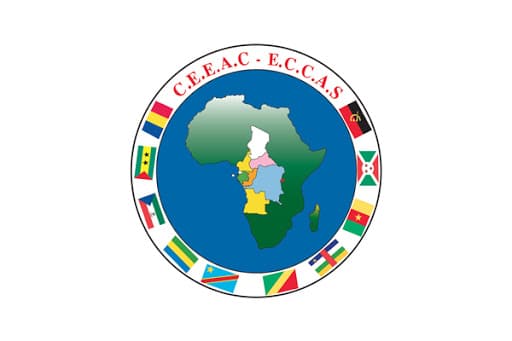 The Economic Community of Central African States (ECCAS) is a regional economic community of 11 member states: Angola (CNE Angola), Burundi(CENI Burundi), Cameroon (ELECAM), Central African Republic (ANE), Chad (CENI Chad), Democratic Republic of Congo (CENI DRC), Equatorial Guinea, Gabon (CGE), Republic of Congo (CENI Congo), Rwanda (NEC Rwanda), Sao Tomé and Principe (CEN Sao Tomé and Principe). A treaty established the Community in October 1983 and it acquired the status of Commission in December 2019.
The Economic Community of Central African States (ECCAS) is a regional economic community of 11 member states: Angola (CNE Angola), Burundi(CENI Burundi), Cameroon (ELECAM), Central African Republic (ANE), Chad (CENI Chad), Democratic Republic of Congo (CENI DRC), Equatorial Guinea, Gabon (CGE), Republic of Congo (CENI Congo), Rwanda (NEC Rwanda), Sao Tomé and Principe (CEN Sao Tomé and Principe). A treaty established the Community in October 1983 and it acquired the status of Commission in December 2019.The ECCAS mobilizes all its resources and energy to make Central Africa a region of peace, prosperity and solidarity based on a unified economic and political space where each citizen moves freely in order to ensure sustainable and balanced development.
The Commission focuses on economic growth, social well-being and preservation of nature as well as the preservation of peace and collective security in Central Africa. In order to carry out its multiple missions, the ECCAS Commission is financed by its member countries and simultaneously carries out several programs in collaboration with international partners such as the European Union, the African Development Bank, the World Bank and the African Union.
ECOWAS Network of Electoral Commissions (ECONEC)
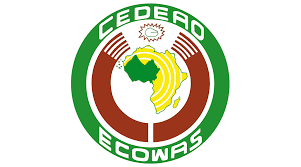 The Economic Community of West African States (ECOWAS) is a regional Community with 15 member states: Benin (CENA Benin), Burkina Faso (CENI Burkina Faso), Cabo Verde (CNE Cabo Verde), Côte D’Ivoire (CEICI), The Gambia (IEC), Ghana (Electoral Commission), Guinea (CENI Guinea), Guinea Bissau (CNE Guinea Bissau), Liberia (NEC Liberia), Mali (DGE Mali, minister de l'Administration territoriale et des Collectivités locales), Niger (CENI Niger), Nigeria (INEC Nigeria), Senegal (CENA Senegal), Sierra Leone (NEC Sierra Leone) and Togo (CENI Togo). ECOWAS was established on May 28 1975 via the treaty of Lagos.
The Economic Community of West African States (ECOWAS) is a regional Community with 15 member states: Benin (CENA Benin), Burkina Faso (CENI Burkina Faso), Cabo Verde (CNE Cabo Verde), Côte D’Ivoire (CEICI), The Gambia (IEC), Ghana (Electoral Commission), Guinea (CENI Guinea), Guinea Bissau (CNE Guinea Bissau), Liberia (NEC Liberia), Mali (DGE Mali, minister de l'Administration territoriale et des Collectivités locales), Niger (CENI Niger), Nigeria (INEC Nigeria), Senegal (CENA Senegal), Sierra Leone (NEC Sierra Leone) and Togo (CENI Togo). ECOWAS was established on May 28 1975 via the treaty of Lagos.While its objectives were initially limited to economic cooperation, emerging political events led to the revision and expansion of the African Union’s scope of cooperation to include the maintenance of regional peace, stability, and security through promoting and strengthening good neighbourliness.
The ECOWAS Network of Electoral Commissions (ECONEC) is the umbrella body of West African Election Management Bodies (EMBs). ECONEC works to strengthen the capacity of West African EMBs to deliver fair and credible elections and thus deepen democracy in the region.
Community of Sahel-Saharan States (CEN-SAD)
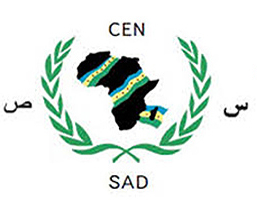 The Community of Sahel-Saharan States (CEN-SAD) is a regional economic community headquartered in N’Djamena, Chad. The 24 member states are: Benin (CENA Benin), Burkina Faso (CENI Burkina Faso), Central African Republic (ANE), Chad (CENI Chad), Comoros (CENI Comoros), Côte d’Ivoire (CEICI), Djibouti (CENI Djibouti), Egypt (NEC Egypt), Eritrea, the Gambia (IEC), Ghana (Electoral Commission), Guinea-Bissau (CNE Guinea Bissau), Libya (HNEC), Mali (DGE Mali, ministere de l'Administration territoriale et des Collectiviŧés locales), Mauritania (CENI Mauritania), Morocco, Niger (CENI Niger), Nigeria (INEC Nigeria), Senegal (CENA Senegal), Sierra Leone (NEC Sierra Leone), Somalia (NIEC Somalia), the Sudan (NEC Sudan), Togo (CENI Togo) and Tunisia (ISIE). The CEN-SAD was established on 4 February 1998, following the Conference of Leaders and Head of States held in Tripoli, Libya.
The Community of Sahel-Saharan States (CEN-SAD) is a regional economic community headquartered in N’Djamena, Chad. The 24 member states are: Benin (CENA Benin), Burkina Faso (CENI Burkina Faso), Central African Republic (ANE), Chad (CENI Chad), Comoros (CENI Comoros), Côte d’Ivoire (CEICI), Djibouti (CENI Djibouti), Egypt (NEC Egypt), Eritrea, the Gambia (IEC), Ghana (Electoral Commission), Guinea-Bissau (CNE Guinea Bissau), Libya (HNEC), Mali (DGE Mali, ministere de l'Administration territoriale et des Collectiviŧés locales), Mauritania (CENI Mauritania), Morocco, Niger (CENI Niger), Nigeria (INEC Nigeria), Senegal (CENA Senegal), Sierra Leone (NEC Sierra Leone), Somalia (NIEC Somalia), the Sudan (NEC Sudan), Togo (CENI Togo) and Tunisia (ISIE). The CEN-SAD was established on 4 February 1998, following the Conference of Leaders and Head of States held in Tripoli, Libya.The primary objective of the organisation specified in the first Treaty, is the establishment of a comprehensive economic union and elimination of all obstacles impeding the unity of its member states to promote economic, cultural, political, and social integration. These objectives were given a new focus by the revised Treaty that emphasised two other areas of deepened cooperation: regional security and sustainable development.
The African Union (AU) is a continental body consisting of the 55 member states that make up the countries of the African Continent. It was officially launched in 2002 as a successor to the Organization of African Unity.
The Secretariat of the African Union is composed of ten commissioners and supporting staff and is headquartered in Addis Ababa, Ethiopia.
The main objectives of the AU are: the achievement of greater unity, cohesion and solidarity between the African countries and African nations; the defense of sovereignty, territorial integrity and independence of its Member States; the promotion of African common positions on issues of interest to the continent and its peoples; encouraging international cooperation, taking due account of the Charter of the United Nations and the Universal Declaration of Human Rights and promoting democratic principles and institutions, popular participation and good governance.


